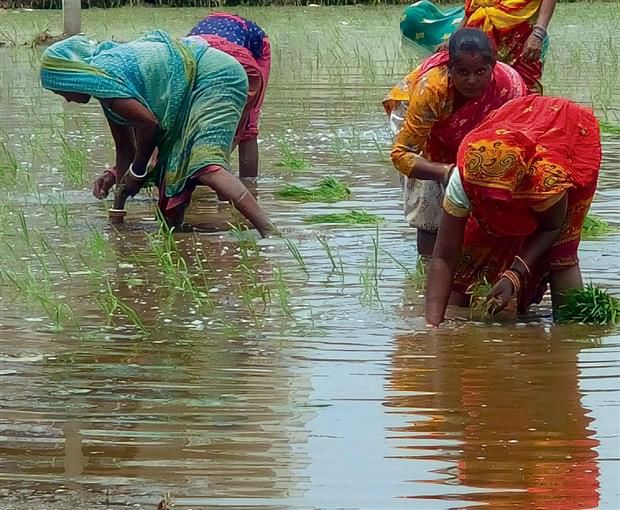Basmati sowing gets under way, Punjab targets 40% increase in area
Govt decides to ban 10 insecticides from July 15 to meet export quality
Ruchika M Khanna
Chandigarh, July 1
With basmati sowing beginning today, Punjab is targeting an increase in area under basmati paddy by nearly 40 per cent this year.
The state Agriculture Department’s plan is not just to increase the area under basmati varieties, but increase in area using water and labour-saving Direct Seeding of Rice (DSR) technique started last year. This year, the state is targeting basmati sowing through DSR on one lakh hectare.
Talking to The Tribune, Punjab Director Agriculture Jaswant Singh said farmers in the basmati belt of Pathankot, Gurdasapur, Amritsar and Tarn Taran were adopting DSR for PUSA 1509 variety. “This year, the total area to be sown using DSR will go up to 2 lakh hectares, up from 1.72 lakh hectares last year. The area under DSR sowing technique is already 90,000 hectares in non-basmati varieties. The remaining target will be achieved through basmati cultivation,” he added.
As per department figures, the area to be brought under basmati paddy is 10 lakh hectares, up from 5.96 lakh hectares last year. With basmati fetching farmers a good price last year — this paddy variety is not procured by the government — it is being hoped that the area would go up.
In 2023, basmati fetched an average price of Rs 3,800 per quintal, though at many places in Punjab, it sold for over Rs 5,000 a quintal. A year prior to that, the returns were not as good — merely Rs 2,700-3,000 per quintal.
To ensure that the basmati quality remains excellent for export, by keeping the pesticide residue level within acceptable range, the state government has decided to ban 10 kinds of insecticides, namely, acephate, buprofezin, chloropyrifos, hexaconozole, propiconaxole, thiamethoxam, profenofos, imidacloprid, carbendazim and tricylazol. The ban on its sale, distribution and use will come in force from July 15.
‘Pesticide-free basmati’
Last year, the state Agriculture Department had conducted an experiment in Chogawan block of Amritsar by cultivating a “pesticide/insecticide-free basmati”. The results of the pesticide residue level in the crop is awaited from Punjab Biotechnology Incubator
Sowing of PUSA varieties
Sowing has started for basmati PUSA varieties 1509, 1847, 1121, 1718 and PB 7 in the basmati belt of Gurdaspur, Pathankot, Tarn Taran, Amritsar and parts of Ferozepur, Fazilka and Hoshiarpur. Basmati varieties are also grown in small patches in other districts of the state
Unlock Exclusive Insights with The Tribune Premium
Take your experience further with Premium access.
Thought-provoking Opinions, Expert Analysis, In-depth Insights and other Member Only Benefits
Already a Member? Sign In Now











